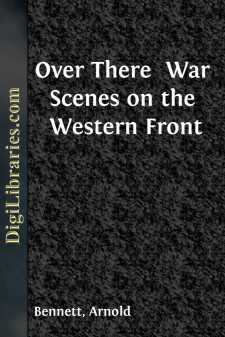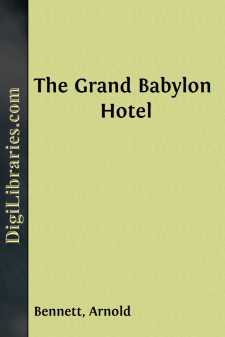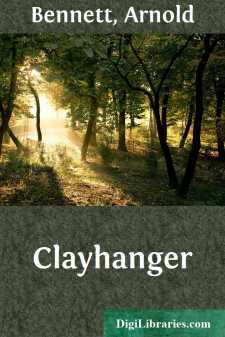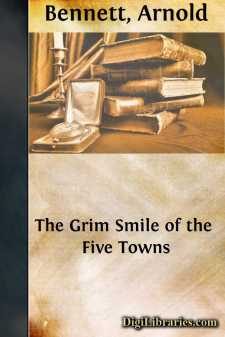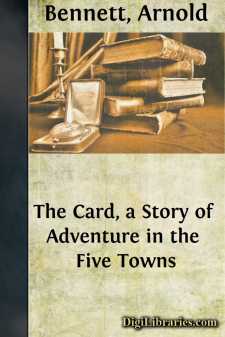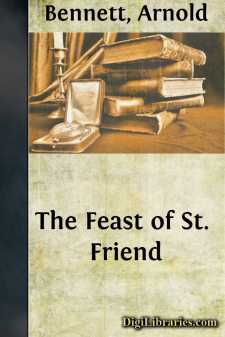Categories
- Antiques & Collectibles 13
- Architecture 36
- Art 48
- Bibles 22
- Biography & Autobiography 813
- Body, Mind & Spirit 142
- Business & Economics 28
- Children's Books 17
- Children's Fiction 14
- Computers 4
- Cooking 94
- Crafts & Hobbies 4
- Drama 346
- Education 46
- Family & Relationships 57
- Fiction 11829
- Games 19
- Gardening 17
- Health & Fitness 34
- History 1377
- House & Home 1
- Humor 147
- Juvenile Fiction 1873
- Juvenile Nonfiction 202
- Language Arts & Disciplines 88
- Law 16
- Literary Collections 686
- Literary Criticism 179
- Mathematics 13
- Medical 41
- Music 40
- Nature 179
- Non-Classifiable 1768
- Performing Arts 7
- Periodicals 1453
- Philosophy 64
- Photography 2
- Poetry 896
- Political Science 203
- Psychology 42
- Reference 154
- Religion 513
- Science 126
- Self-Help 84
- Social Science 81
- Sports & Recreation 34
- Study Aids 3
- Technology & Engineering 59
- Transportation 23
- Travel 463
- True Crime 29
Arnold Bennett
Arnold Bennett was a prolific English writer born on May 27, 1867, in Hanley, Staffordshire. He is best known for his novels set in the Potteries, a region in Staffordshire, such as "The Old Wives' Tale" and "Clayhanger," which provide a vivid depiction of life in the industrial towns of that era. Bennett's works were influential in the early 20th century, earning him a prominent place in English literature, and he was also a notable journalist and playwright.
Author's Books:
Sort by:
by:
Arnold Bennett
I The Zone Of Paris From the balcony you look down upon massed and variegated tree- tops as though you were looking down upon a valley forest from a mountain height. Those trees, whose hidden trunks make alleys and squares, are rooted in the history of France. On the dusty gravel of the promenade which runs between the garden and the street a very young man and a girl, tiny figures, are playing with...
more...
by:
Arnold Bennett
Chapter One THE MILLIONAIRE AND THE WAITER 'YES, sir?' Jules, the celebrated head waiter of the Grand Babylon, was bending formally towards the alert, middle-aged man who had just entered the smoking-room and dropped into a basket-chair in the corner by the conservatory. It was 7.45 on a particularly sultry June night, and dinner was about to be served at the Grand Babylon. Men of all sizes,...
more...
by:
Arnold Bennett
HIS BIRTH On an evening in 1866 (exactly eight hundred years after the Battle of Hastings) Mr. Henry Knight, a draper's manager, aged forty, dark, clean-shaven, short, but not stout, sat in his sitting-room on the second-floor over the shop which he managed in Oxford Street, London. He was proud of that sitting-room, which represented the achievement of an ideal, and he had a right to be proud of...
more...
by:
Arnold Bennett
The Last of a Schoolboy. Edwin Clayhanger stood on the steep-sloping, red-bricked canal bridge, in the valley between Bursley and its suburb Hillport. In that neighbourhood the Knype and Mersey canal formed the western boundary of the industrialism of the Five Towns. To the east rose pitheads, chimneys, and kilns, tier above tier, dim in their own mists. To the west, Hillport Fields, grimed but...
more...
by:
Arnold Bennett
THE APPEAL If there is any virtue in advertisements—and a journalist should be the last person to say that there is not—the American nation is rapidly reaching a state of physical efficiency of which the world has probably not seen the like since Sparta. In all the American newspapers and all the American monthlies are innumerable illustrated announcements of "physical-culture specialists,"...
more...
by:
Arnold Bennett
This preface, though placed at the beginning, as a preface must be, should be read at the end of the book. I have received a large amount of correspondence concerning this small work, and many reviews of it—some of them nearly as long as the book itself—have been printed. But scarcely any of the comment has been adverse. Some people have objected to a frivolity of tone; but as the tone is not, in...
more...
by:
Arnold Bennett
CHAPTER I MONEY IN THE HOUSE I In the evening dimness of old Mrs. Maldon's sitting-room stood the youthful virgin, Rachel Louisa Fleckring. The prominent fact about her appearance was that she wore an apron. Not one of those white, waist-tied aprons, with or without bibs, worn proudly, uncompromisingly, by a previous generation of unaspiring housewives and housegirls! But an immense blue...
more...
by:
Arnold Bennett
THE LION'S SHARE I In the Five Towns the following history is related by those who know it as something side-splittingly funny—as one of the best jokes that ever occurred in a district devoted to jokes. And I, too, have hitherto regarded it as such. But upon my soul, now that I come to write it down, it strikes me as being, after all, a pretty grim tragedy. However, you shall judge, and laugh or...
more...
by:
Arnold Bennett
CHAPTER I I Edward Henry Machin first saw the smoke on the 27th May 1867, in Brougham Street, Bursley, the most ancient of the Five Towns. Brougham Street runs down from St Luke's Square straight into the Shropshire Union Canal, land consists partly of buildings known as "potbanks" (until they come to be sold by auction, when auctioneers describe them as "extensive earthenware...
more...
by:
Arnold Bennett
THE FACT Something has happened to Christmas, or to our hearts; or to both. In order to be convinced of this it is only necessary to compare the present with the past. In the old days of not so long ago the festival began to excite us in November. For weeks the house rustled with charming and thrilling secrets, and with the furtive noises of paper parcels being wrapped and unwrapped; the house was a...
more...


